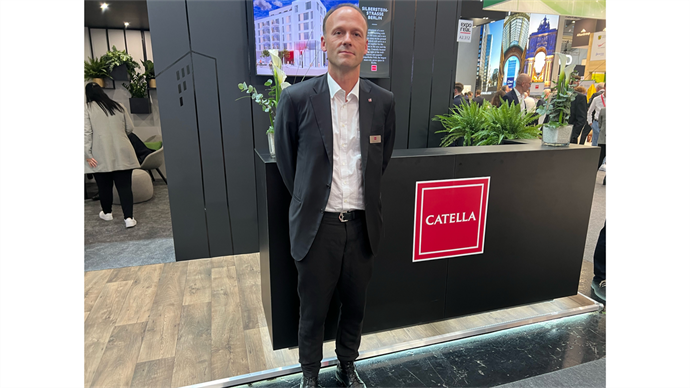Residential real estate in Europe has proven to be a resilient and rewarding investment and the outlook for the sector remains positive, Michael Keune, managing director of Catella Residential Investment Management (CRIM), told PropertyEU at Expo Real.
‘Residential real estate has emerged as a standout investment in Europe, characterized by consistently high occupancy rates and strong tenant demand. Even during inflationary periods, tenants have demonstrated a remarkable ability to meet their rental obligations,’ Keune said. ‘This stability makes residential property a particularly attractive investment compared to commercial or retail portfolios, which are often more susceptible to development challenges and vacancy issues,’ he added.
Over the past two-and-a-half years, residential real estate values have reached their bottom, lagging only slightly behind long-term market prices. However, rental income has continued to rise, and fund share prices are on an upward trajectory. Overall, the outlook for residential real estate remains positive, according to Keune.
CRIM’s focus, he explained, is on completing existing projects while new developments have been put on hold. Germany, the Netherlands, France, and the UK are the firm’s primary markets. Notable projects include developments in Aix-en-Provence (France), Zoetermeer (the Netherlands), and three in Berlin, totalling €50 million.
Last year, CRIM completed 3,000 apartments, while this year it delivered 1,000, a figure that is expected to rise to 1,500 by the end of the year. Around 700 units are slated for completion next year.
In the PBSA segment, the company acquired a 2,000-bed student housing project in Leipzig, which has recently been completed.
Keune said CRIM’s focus on Germany, the Netherlands, and the UK reflects the fact that it is easier to dispose of assets in these markets. In 2022, for example, the company divested €1 bn worth of older assets.
Turning to ESG factors, Keune noted that these are increasingly influencing property valuations. Assets that meet stringent decarbonisation standards are likely to be valued higher, while those that fall short may face discounts. ‘Ongoing updates to ESG practices are essential for the company's portfolio, which is notably modern and lacks assets from the 50s, 60s, and 70s,’ he stressed.
Despite market challenges, CRIM is open to discussing collaborative opportunities at Expo, Keune said. While the number of active participants at this year’s event may have decreased, he anticipates closing deals even in the fourth quarter of 2024. ‘Germany has seen fewer distressed deals, and we are hopeful for at least one non-distressed transaction’.
Despite forecasts of a recession in Germany next year, he anticipates that ‘the difficulties experienced by developers and subcontractors could present opportunities for those who are able to navigate the market effectively,’ concluding that ‘the construction sector will adapt and that some companies will emerge stronger.’


































